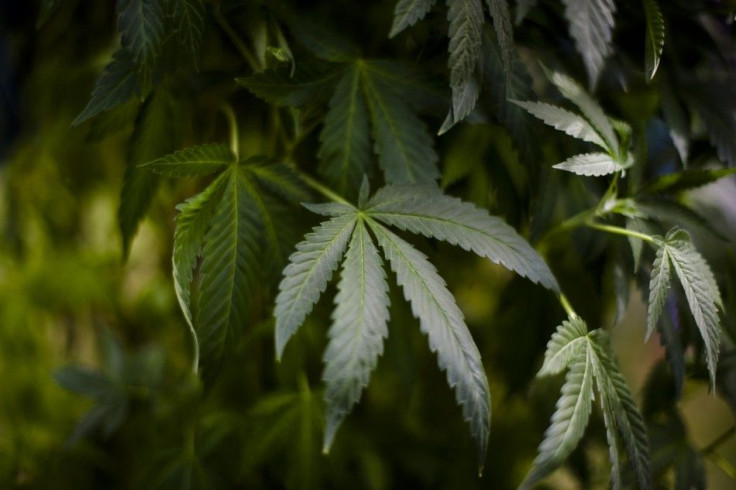Caught in the Middle, California Doctors Back Marijuana Legalization

California doctors find themselves in a tenuous position when it comes to marijuana, a substance that remains illegal under federal law and whose potential health benefits have yet to be proven. The California Medical Association's recently announced solution to this predicament was both simple and unprecedented: legalize it.
Federal prosecutors have announced a sweeping effort to close down some marijuana dispensaries in California, illustrating the tension between California's decision to decriminalize cannabis and the federal government's continuing ban on the substance. In a paper explaining its new stance, the California Medical Association argued that the incongruence between state and federal law has unfairly inserted physicians into a legal conflict. Despite the federal prohibition marijuana remains widely available, which led the authors to denounce the criminalization of cannabis as a failed public health policy.
California Physicians: State's Marijuana 'Gatekeepers' ?
The federal illegality of cannabis coupled with the decriminalization of cannabis in California has inappropriately placed physicians in the role of 'gatekeeper,' the authors wrote. Those wishing to gain access to cannabis to avoid criminal penalties currently look to physicians for a recommendation of medicinal cannabis.
Doctors play often play the role of cannabis provider despite the fact that there is no consensus within the medical community about the medical benefits of marijuana. California Medical Association Board Chair Pail Phinney said that efforts to conduct further research have been stymied by the fact that cannabis is not only illegal but also listed as a Schedule 1 drug, a designation that means it has a high potential for abuse and no accepted medical use. Currently, researchers must obtain marijuana from a government-run farm in Mississippi and then have a grant approved by the federal government.
There simply isn't the scientific evidence to understand the benefits and risks of medical cannabis, Phinney said in a press release. We need to regulate cannabis so that we know what we're recommending to our patients, Phinney added. Currently, medical and recreational cannabis have no mandatory labeling standards of concentration or purity. First, we've got to legalize it so that we can properly study and regulate it.
Stephen Gutwillig, the California director for the Drug Policy Institute, hailed the decision as a threshold moment for the movement to reform marijuana policies.
They are saying marijuana should not only be removed from the criminal justice system, it should be regulated, Gutwillig said. It should be made available to adults as a legal regulated commodity.
The word regulation is key. Doctors technically cannot prescribe cannabis because it has not been sanctioned by the Food and Drug Administration -- they can only recommend it. As a result many doctors are offering cannabis in haphazard fashion, with doses and potencies varying widely. Critics say that a small subset of doctors hand out recommendations with an ease that would be illegal for controlled substances like oxycontin or valium.
A physician who writes a medical recommendation is in a silly situation because he's writing a recommendation for nothing in particular, said Mark Kleiman, a professor of public policy at the University of California, Los Angeles. If a physician wants to prescribe a beta blocker to me he says 'take 5 milligrams of this particular drug every day' and knows precisely how many molecules he's interested in getting into my drug stream. A prescription that says 'smoke pot' is not very helpful.
A Demerit for Medical Profession?
Keith Humphreys, a professor at the Stanford School of Medicine who was a senior policy advisor for the Obama administration's National Drug Control Policy office, said the current situation makes medicine look bad. He said the issue of marijuana legalization was conjoined with medicine as a way to win mainstream approval, and as a result some patients see their doctors as more of an entertainment center than a health care provider.
This whole thing got stuck into medicine because people who favor legalization of marijuana felt this was a way to win over the public, and so people voted thinking that all these folks were going to have cancer and AIDS and we all feel tremendously sympathetic to that, Humphreys said. If you think of it that way you realize why doctors are frustrated, because the vast majority are recreational users from what evidence is available.
Although the California Medical Association argued for legalization as a way to facilitate research, Humphreys predicted that decriminalizing marijuana could have the opposite effect.
Once it were legalized interest in research could drop dramatically because research has been to make the case for legalization in a lot of peoples' minds, Humphreys said. There will never be a time when most doctors prescribe a common plant or when they say 'smoke something' -- doctors are some of the most anti-smoking people in the country.
You can contact the reporter at j.white@ibtimes.com
© Copyright IBTimes 2024. All rights reserved.











